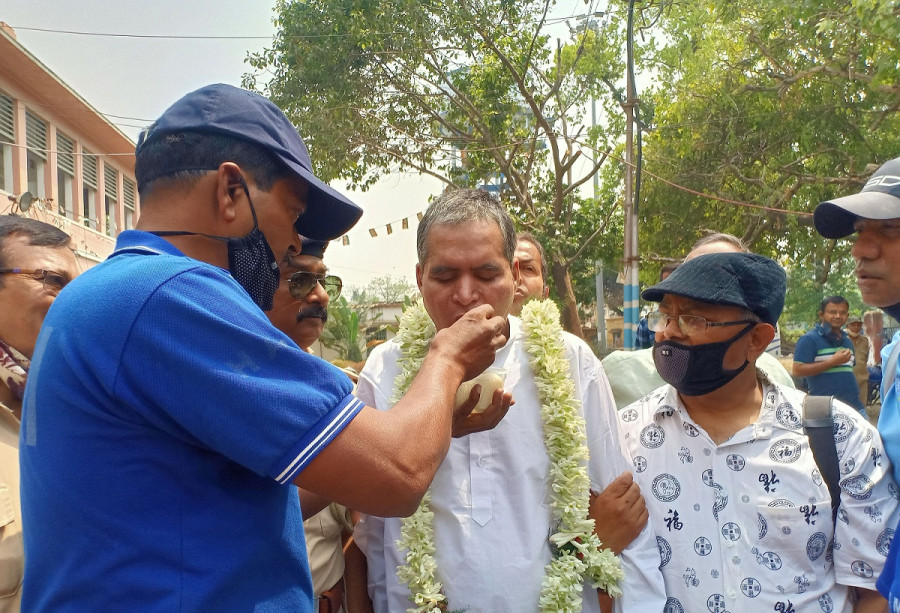Editorial
A passage out of Kafkaland
For the poor, the marginalised and the illiterate, the criminal justice process itself is the punishment.
Durga Prasad Timsina became a free man on Saturday after 40 long years in various Indian prisons. He had been lodged in a jail in Darjeeling before being transferred to Alipurdwar Jail and then to Dum Dum Central Correctional Home in Kolkata. Timsina had been in prison without a formal court trial an exceptionally long number of years although the charges against him—of murdering a woman in Darjeeling in 1980—were never made the matter of a formal trial. Timsina was finally released after a former fellow inmate brought this issue to light last October, and a few golden-hearted lawyers helped secure his release.
Timsina's case is an epitome of the Kafkaesque penal system that often punishes people for the sheer absurdity of the process.
Timsina, though, is hardly the first and the last person to have gone through the ordeal; it is, in fact, a reflection of highly problematic criminal justice systems throughout the world that take the life of human beings and reduce them to shadow figures languishing in jails for years without a trial. In highly stratified societies, marginalised communities are at a higher risk of facing discrimination in the judicial process, their journey out of the jail being longer than usual. In India, for instance, seven in 10 prisoners are awaiting trial, and a third of the total inmates are Dalits and Adivasis—a gross overrepresentation in demographic terms. For the poor, the marginalised and the illiterate, the process itself is the punishment.
The inmates may be found innocent at the end, but they would have lost the prime of their youth, their mental health, and their opportunities to live as a free being in this mortal world would have been lost forever. Even if they are provided with monetary compensation, on rare occasions, it means nothing compared to what they have lost. Beginning life at 60, as in the case of Timsina, sounds Sisyphean.
Is there closure for someone who has faced punishment many times more than the actual charges would possibly carry? The answer is a definite 'no'. Timsina's release after languishing in Indian jails for decades is, therefore, a wakeup call for long-overdue reform of the penal system. Administrative failures often leave inmates under or without trial for years even if there is no solid evidence against them—a gross abuse of human rights.
While the criminal justice system is one of the most essential mechanisms for the advance of modern society, it cannot, in its lapses, remain a repressive system. It must find ways to rectify those mistakes and stop confining human beings illegally for long durations, depriving them of their fundamental right to live freely. The key, therefore, is to keep reforming the penal system so that our quest for providing justice to some does not end up providing injustice to others.
Timsina's case is also a slap in the face of officials at the Ministry of Foreign Affairs who have failed to keep track of the trials and tribulations Nepali citizens are facing abroad. Even as Nepal depends heavily on the remittance sent by Nepalis from all over the world, the country needs to do more to safeguard the life and liberty of its citizens wherever they are.




 17.12°C Kathmandu
17.12°C Kathmandu













